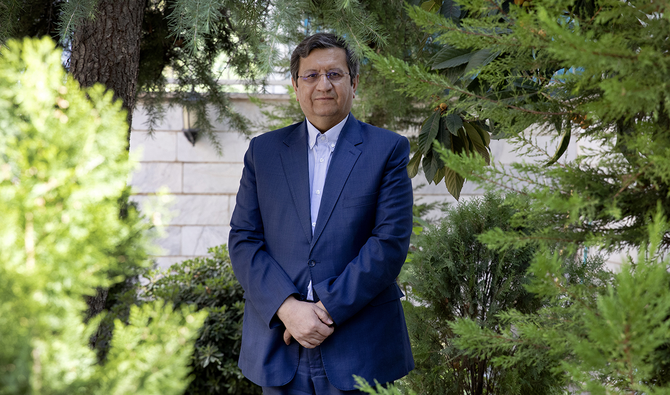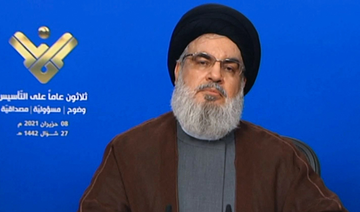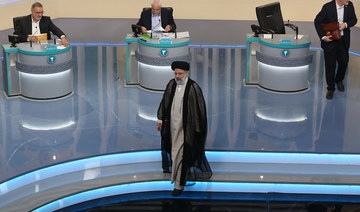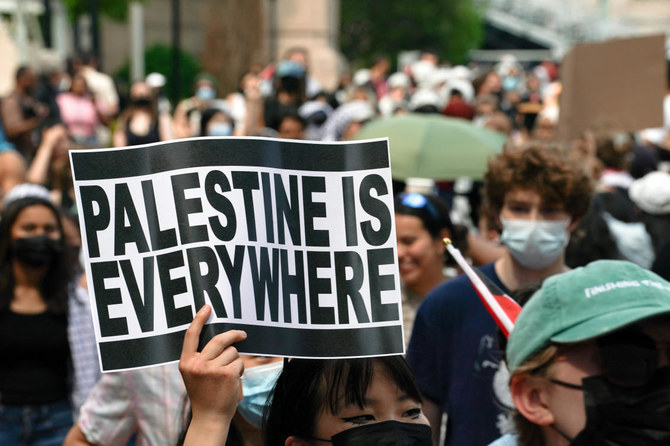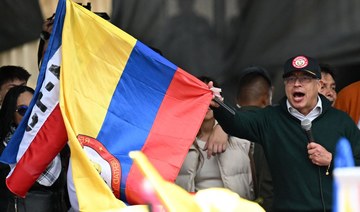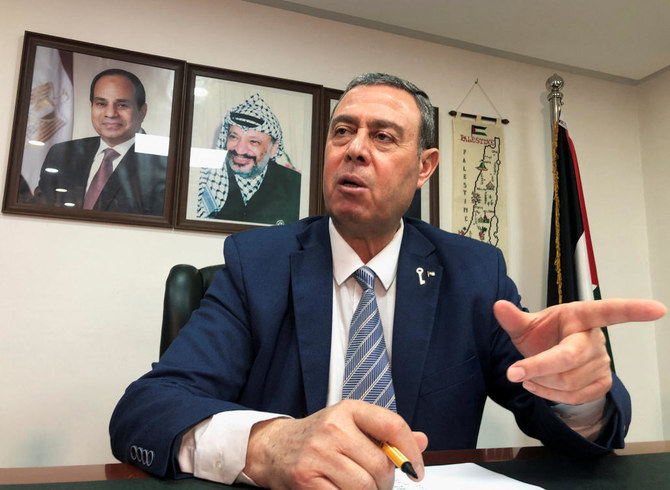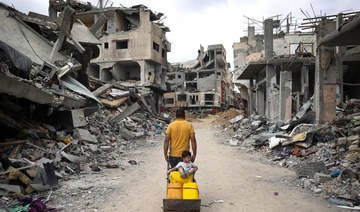TEHRAN: An Iranian presidential candidate said on Wednesday he would be willing to meet US President Joe Biden if he wins his country’s election next week, though “America needs to send better and stronger signals” to the Islamic Republic.
Speaking to The Associated Press, former Iranian Central Bank chief Abdolnasser Hemmati stressed that an American return to Iran’s tattered nuclear deal was key to any possible relationship amid the wider tensions in the Mideast.
“I think we haven’t seen anything serious from Mr. Biden’s side yet,” Hemmati said. “They first need to go back to the (nuclear deal) that they withdrew from. If we see the process and more confidence is built, then we can talk about that.”
Hemmati, 64, is one of the seven candidates approved by Iranian authorities to run for the presidency in the Islamic Republic’s June 18 election. Polling and analysts suggest he lags in the race behind hard-line judiciary chief and front-runner Ebrahim Raisi, believed to be a favorite of Iran’s Supreme Leader Ayatollah Ali Khamenei.
Talking to AP journalists at his Tehran office, Hemmati repeatedly said that the signal Iranians hoped to see from the US was Washington’s return to the nuclear deal.
“The Americans have sent positive signals but those signals haven’t been strong enough,” he said. “If there are stronger signals, it will affect how optimistic or pessimistic we are.”
Asked about whether Iran would be willing to accept further restrictions, such as on its ballistic missile program to get sanctions relief, Hemmati said Tehran would refuse such an offer.
“Iran’s nuclear commitments must be inside the framework of the (deal),” he said. “If they are not, neither the (supreme) leader nor the president will accept that.”
Iranians will vote for a new president on June 18 in a poll many see as decided in advance, with ultraconservatives expected to strengthen their grip on power amid record low turnout.
Just seven men have been approved to run — five ultraconservatives and two reformists — to take over from President Hassan Rouhani, who after two four-year terms in a row is constitutionally barred from running again.
With his main rivals excluded from the final list of candidates, judiciary head Ebrahim Raisi is the clear favorite in the 13th presidential poll since Iran’s 1979 revolution. In a live televised debate Saturday, Raisi avoided clashing with reformists, instead focusing on Iranians’ economic woes.
“Inflation is one of the serious problems people are facing today,” along with the “dishonesty of certain officials,” he said.
Iran’s conservative camp has blamed the reformists for having trusted the West — but Rouhani on Wednesday defended his track record after eight years in office.
“It was the nuclear deal that put the country on the path to (economic) development, and today the solution to the country’s problem is for everyone to go back to the deal,” he said. “We don’t know any other way.”
Campaigning kicked off in late May with little fanfare. Few campaign posters are visible in Tehran apart from those of Raisi, who took 38 percent of the vote in the last election in 2017.
The mood has been dampened by coronavirus restrictions on public gatherings, and observers expect many voters to abstain — something that tends to favor the conservative camp.
Last year’s parliamentary elections saw 57 percent abstention and allowed conservatives to dominate the legislature, after thousands of mostly reformist or moderate candidates were disqualified.
In recent weeks, the Iranian press had widely predicted a showdown between Raisi and moderate conservative Ali Larijani, an adviser to supreme leader Ayatollah Ali Khamenei.



